5 Free Data Science Books You Must Read in 2023
Get your hands on these gems to learn Python, data analytics, machine learning, and deep learning.
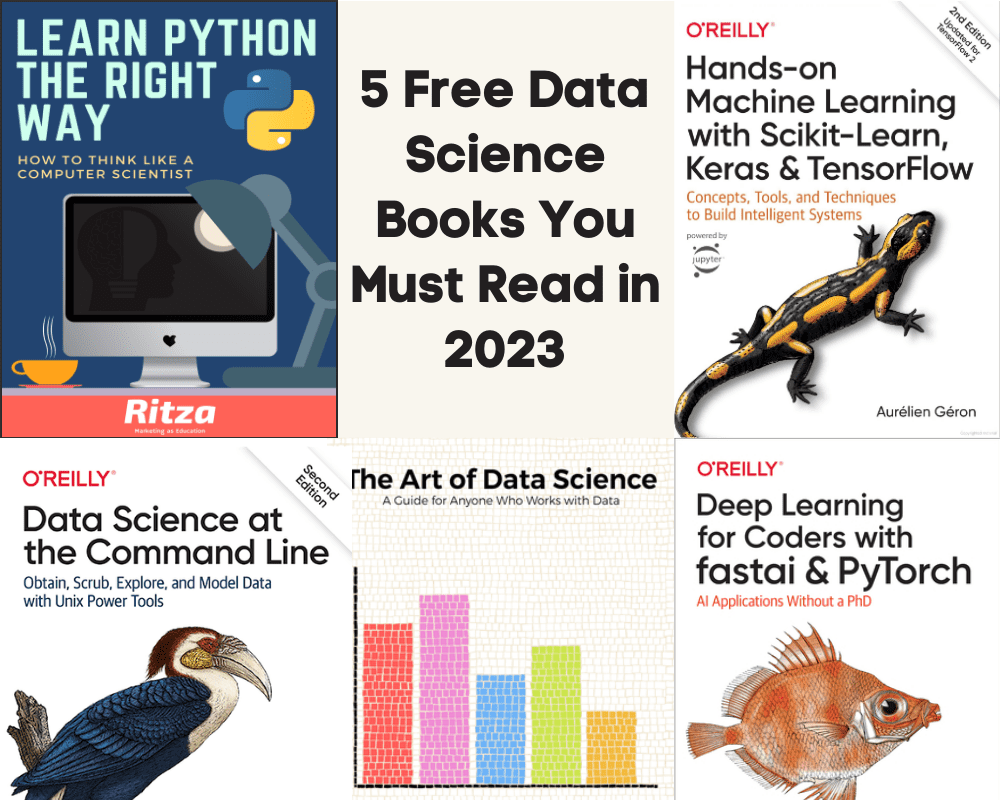
Image by Author
If you are a book lover like me, then you should start looking at data science books that are available to you for free. These books will teach you Python programming, the art of data science, and machine learning and introduce you to new tools and frameworks. Moreover, some books are built like a website so that you can explore, search and interact with the book.
1. Learn Python the Right Way
Learn Python the Right Way is a book for beginners who are interested in learning Python but don’t know where to start. You can download the book or use a web interface to read it online. Every chapter comes with a YouTube tutorial explaining syntax and functionalities in detail.
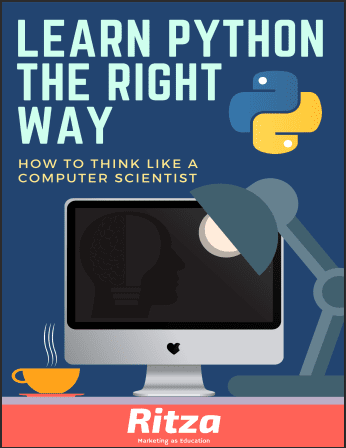
Book Cover
You can read the book, watch the tutorial, or even practice the code on free online IDE Replit. It covers all of the basics you need to start your data science career.
The book covers:
- Python setup and basics
- Variables, expressions and statements
- Creating the first Python program
- Functions
- Conditionals
- Complex functions.
- Iteration
- Strings
- Tuples
- Event handling, Exceptions
- List, Dictionaries, Modules, Files
- Algorithms, Classes, Objects, OOP, Inheritance
- PyGame, Recursion, Queues
- Linked lists, Stacks, Trees
2. Art of Data Science
Art of Data Science by Roger D. Peng et al. represents data analysis as an art of understanding the question, exploring the data, conducting formal modeling, interpreting results, and communicating findings.
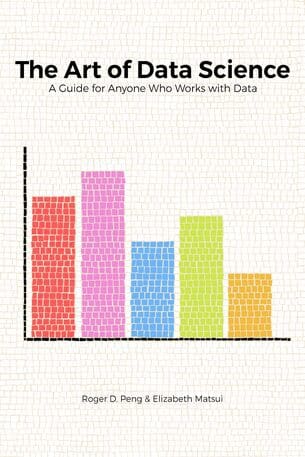
Book Cover
Instead of focusing on statistics and coding, the book teaches you critical thinking. You will learn how to Refine the questions, perform exploratory data analysis, apply linear regression or random forest, and interpret the result to provide actionable insights.
The book covers:
- Epicycles of Analysis
- Stating and Refining the Question
- Exploratory Data Analysis
- Using Models to Explore Your Data
- Inference: A Primer
- Formal Modeling
- Inference vs. Prediction: Implications for Modeling Strategy
- Interpreting Your Results
- Communication
3. Data Science at the Command Line
Data Science at the Command Line is my favorite, and I have written a detailed review about it in the KDnuggets blog. You can either buy a book from Amazon or read the online version for free. The online version is interactive and comes with interesting features.
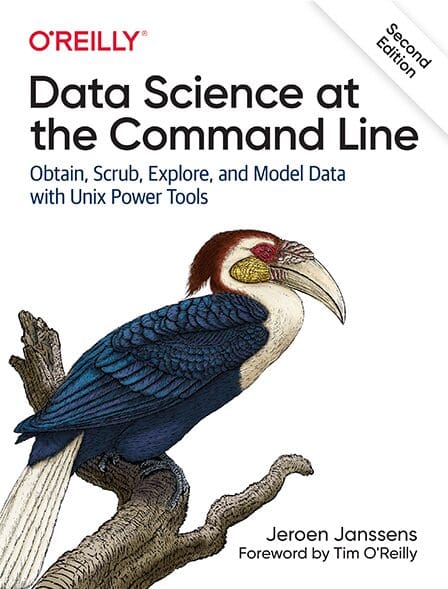
Book Cover
The book introduces you to essential command line tools with examples for performing all kinds of data science tasks. You can clean the data, perform data analysis and visualization, and train machine learning models all from your terminal.
The book covers:
- Obtaining Data
- Creating Command-line Tools
- Scrubbing Data
- Project Management with Make
- Exploring Data
- Parallel Pipelines
- Modeling Data
- Polyglot Data Science
4. Hands-On Machine Learning with Scikit-Learn, Keras, and TensorFlow
Hands-On Machine Learning with Scikit-Learn, Keras, and TensorFlow will teach you everything about machine learning from the beginning. You will learn to build basic machine learning to deep learning models using Scikit-Learn, Keras, and TensorFlow. You will learn about classification, RNNs, CNNs, NLP, GANs, and Reinforcement learning models.
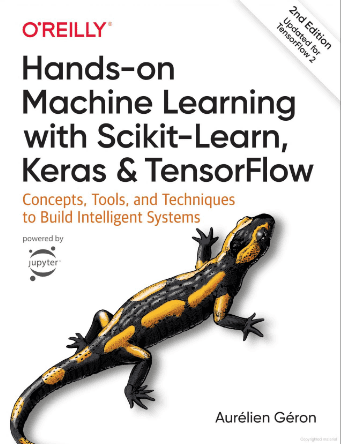
Book Cover
Before you read this book, you need to understand that the book assumes that you understand the basics of Python and libraries such as NumPy, pandas, and matplotlib.
The book covers:
- End-to-end machine learning project
- Classification
- Training the models
- Support Vector Machine
- Decision Tree
- Ensemble learning
- Dimensionality Reduction
- RNNs and CNNs
- NLP
- GANs
- Reinforcement Learning
- Training and Deploying model at Scale
5. Practical Deep Learning for Coders
Practical Deep Learning for Coders is a hard copy book, a web-based book, and a course introducing you to the world of deep learning using fastai and PyTorch. It is my favorite course and book. You will learn everything about neural networks without going deep into math or programming. The course is for anyone who knows the basics of Python language.

Book Cover
The book covers:
- From Model to Production
- Data Ethics
- Training a Digit Classifier
- Image Classification
- Other Computer Vision Problems
- Training a State-of-the-Art Model
- Collaborative Filtering Deep Dive
- Tabular Modeling Deep Dive
- NLP Deep Dive: RNNs
- Data Munging with fastai’s Mid-Level API
- A Language Model from Scratch
- Convolutional Neural Networks
- ResNets
- Application Architectures Deep Dive
- The Training Process
- A Neural Net from the Foundations
- CNN Interpretation with CAM
- A fastai Learner from Scratch
Conclusion
All five books are great, and I will highly recommend these books to any beginner who is skeptical about a data science career. Moreover, these books come with a practical guide, code examples, and visual aid to explain complex terminologies in a simple way.
I hope you like my list. If you have any recommendations, do mention them in the comments, and I will try to add them to the next list.
Abid Ali Awan (@1abidaliawan) is a certified data scientist professional who loves building machine learning models. Currently, he is focusing on content creation and writing technical blogs on machine learning and data science technologies. Abid holds a Master's degree in Technology Management and a bachelor's degree in Telecommunication Engineering. His vision is to build an AI product using a graph neural network for students struggling with mental illness.
